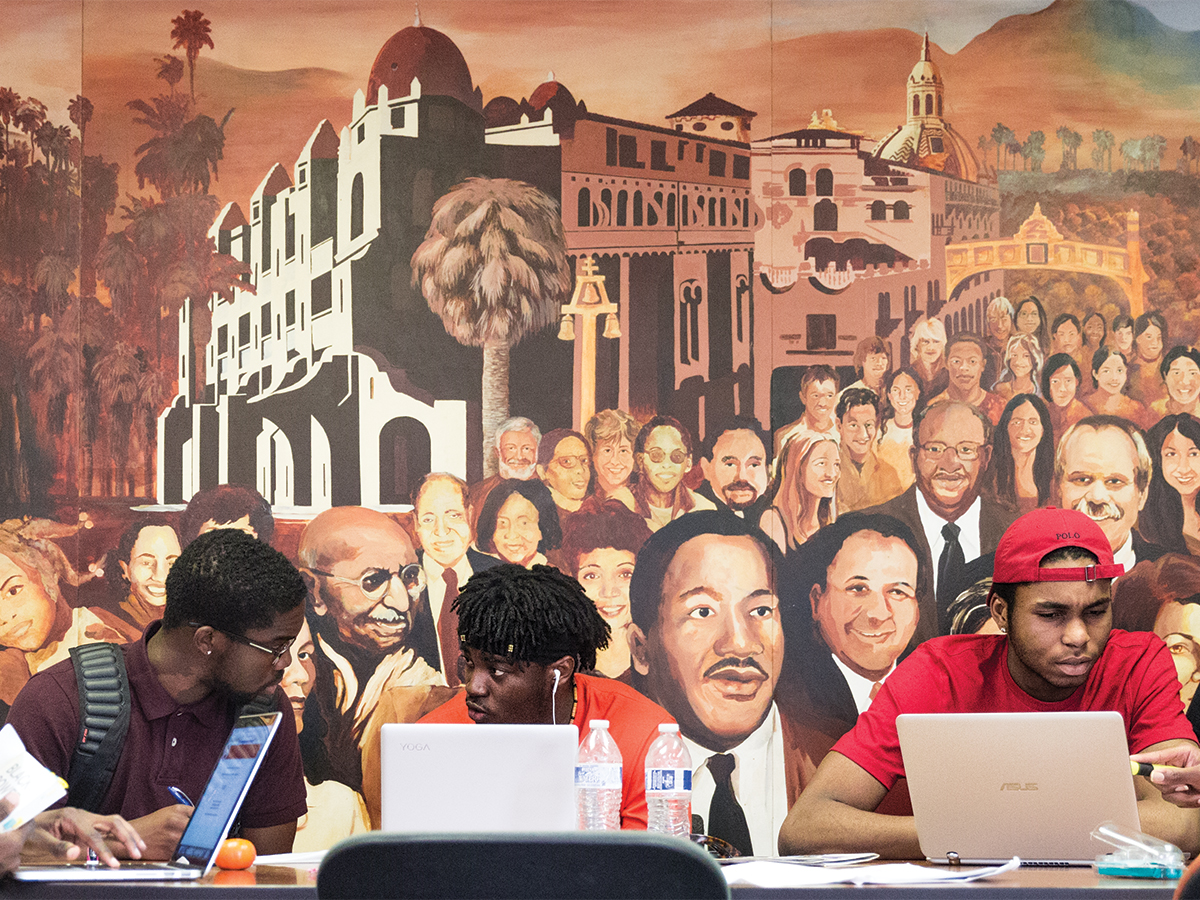
A recent study titled, “A Look at Black Student Success: Identifying Top- and Bottom-Performing Institutions,” revealed that black students at UC Riverside graduate at a rate of 1.7 percent faster than their white counterparts. The study, completed by The Education Trust, analyzed graduation data from 676 nonprofit institutions in order to rank student college completion rates. Kenneth Simons, the director for the UCR African Student Programs (ASP), credits ASP and the administration for this achievement, as well as the students who attend UC Riverside.
ASP was opened 45 years ago after the dismantling of the Black Studies Program at UCR. Since then, Simons and his team have been working to “develop a holistic and inclusive atmosphere” for black students at UCR. Part of the success he has had in working to support the students he works with comes from his own ability to relate to them, as he, like many others, is the first from his family to attend college. “That comes with an understanding of what students’ needs are,” explains Simons.
Speaking on the backgrounds of most black students, Simons remarked on how most of the peers he works with do not come from affluent families and are often the recipients of the Pell Grant and other forms of financial aid. This motivates Simons to create an environment that gives students “the sense that they are included and welcome, empowers them (black students) and encourages them to persevere.”
Some challenges that the administration and ASP has overcome together, include figuring out how to address problems with discrimination on campus. Simons acknowledged that on occasion, faculty members have made derogatory comments toward students and racial groups, but that the program has learned to reach out to certain administrators who have been helpful in addressing their concerns. Students participating in ASP have also found successful means of communicating with campus administrators to further their cause in creating a better environment for current and future black students at UCR. “I am proud that our administration is listening to what their needs are and not just listening, but figuring out ways to deliver,” Simons stated.
The aforementioned discrimination has, in a sense, united the students. Simons explained how while ASP represents many students from the African diaspora, such as students from Ghana and Niger, they feel united because whether “you’re here on campus or you’re off campus, folks will look at you as just a black student.” Because of this, ASP encourages students to create a safety net of support, furthered Simons.
Despite the success of ASP, Simons acknowledges that they “haven’t figured it all out,” describing how every generation presents a new challenge, but they are currently redeveloping the program to accommodate students’ needs and to enhance student life. One of the plans for the program involves revamping the peer mentor support group, in which they plan to create a support group that is “more inclusive of the private sector, alumni, faculty, staff and administrators on campus, in order to provide a network of support for our students academically.” This program will be relaunched in the fall of 2017.
While hesitant to name any one student that he was proud of, Simons did say that he feels Festus Ohan is one student who was a part of the UCR survey that he truly feels overcame all odds to graduate college. Despite the adversity Ohan faced being raised in the foster system, he is currently a medical student on a full-ride scholarship at UCLA, which was his top choice out of the nine other medical schools he was accepted into, which included Northwestern University.
Simons believes that this study will draw more black students to UCR and hopes that when the study is performed again in the next four to five years, his students will continue to graduate at the same rate. He reminded current students, however, that it was their job to continue the good work, saying, “It is the folks that were here before you that had the high graduation rates, your job is to continue that legacy.”
Tyler Hilliard, an undeclared first-year, said that the study has empowered him and encouraged him to work harder in school. He spoke about how he was first drawn to UCR by similar studies that spoke of the diversity on campus, as well as the large population of black students, saying, “It made me feel like I wouldn’t go through the college experience alone, because I knew other people were going to be pushing me and encouraging me to always strive for excellence.”








